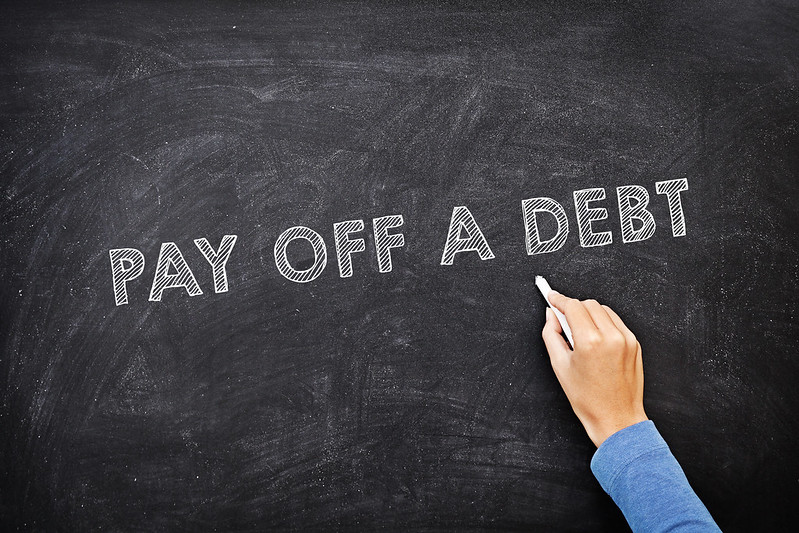One of the biggest debates in personal finance is paying off debt vs. investing. As with so many things related to money, the answer isn’t one-size-fits-all.
Instead, where you fall depends on your situation, financial goals, and what you hope to accomplish.
Paying Off Debt vs. Investing: The Debate
At the heart of this debate is a disagreement over how to best use your money.
Pay Off Debt
Those who say you should pay off debt before investing believe that debt holds you back. You’re less likely to see investment returns that beat paying off a high-interest credit card debt. Many advocates cite the benefits of paying off debt, including better mental and financial health. They say to free yourself of debt before you invest. You can then put all of what used to go toward debt repayment into investment accounts.
There’s more nuance to this, of course. Some people suggest that you should focus on paying off high-interest debt — perhaps debt with an interest rate above 8%. For debts with a lower interest rate, the suggestion is often to pay them down slowly while putting some money toward investing.
Invest
Those that suggest you invest often point out the benefits of compounding returns. The longer you invest, the more likely you will see bigger gains later. They point out that putting off investing comes with an opportunity cost. There’s no replacing time in the market.
However, some suggest that you aggressively pay down debt while still maintaining some money for investing. They might recommend taking advantage of your company’s 401(k) match to at least get some free money and then use the rest to pay down debt.
As with those who favor paying down debt, most people in this debate recognize that many people are likely to be drawn to a mix of methods.
Deciding Whether Paying Off Debt vs. Investing Works for You
Your approach depends on your personal risk tolerance, your feelings about debt, and your most important financial goals. Here are some of the things to consider as you make the determination for yourself.
Interest Rate
Compare interest rates and potential returns. Experts often point out that paying off debt is a “guaranteed return” equal to the interest rate. So, if you have a credit card with a 27.99% APR, the idea is that paying it down offers a guaranteed return of 27.99% on your money.
You’re less likely to get that return in the stock market.
On the other hand, if you have a mortgage rate of 3.5%, you might feel paying that debt off early doesn’t make sense. After all, if you keep your money in the market instead of making extra mortgage payments, you’re more likely to see a long-term benefit as you reap much higher returns.
Your Feelings About Debt
Most money issues are about more than just math. How you feel about debt can influence your choices. You might hate being in debt or owing money if a recession happens.
Focusing on debt paydown can make a lot of sense in these cases, even if the “smart” math favors keeping the debt longer. You might put more toward paying off your mortgage as fast as possible if you’re concerned about stability and loss of your home.
If you’re anxious about the debt, putting more into paying it off can make sense.
Financial Priorities
Reaching most financial goals requires priority setting. Most people are working toward multiple goals at once. That’s why it’s possible to both pay down debt and invest. You might also be working on other goals, such as saving for retirement or getting ready to buy a car.
Whether you focus more on paying off debt vs. investing also depends on your timeframe and what you hope to accomplish.
You might decide to focus mainly on paying off high-interest debts first, then putting more toward investing while you tackle the rest of your debt. Or, you might decide you’re okay with paying down your debt a little slower while aggressively building a dividend portfolio.
Dividing Your Debt and Investing Money
Deciding how to divide your money between paying off debt and investing can feel like a daunting task. Ultimately, you should make that decision based on what works best for you.
Think about your short-term and long-term goals, your feelings around money, and what will give you peace. Figure out how much extra money you have each month toward paying off debt and investing. Then, divide that money up based on your priorities.
If you’re more concerned about building a portfolio, consider allocating 50% to 80% of your available cash toward investing and putting the rest toward paying down debt. On the other hand, if you’re trying to pay off debt as fast as possible, and the thought of being in debt makes you sick, you can allocate 85% to 95% of that toward tackling your debt and move to invest more later.
And, of course, you can always tweak these numbers as you move forward. You don’t have to feel bad about your path as long as you’re making financial progress.

